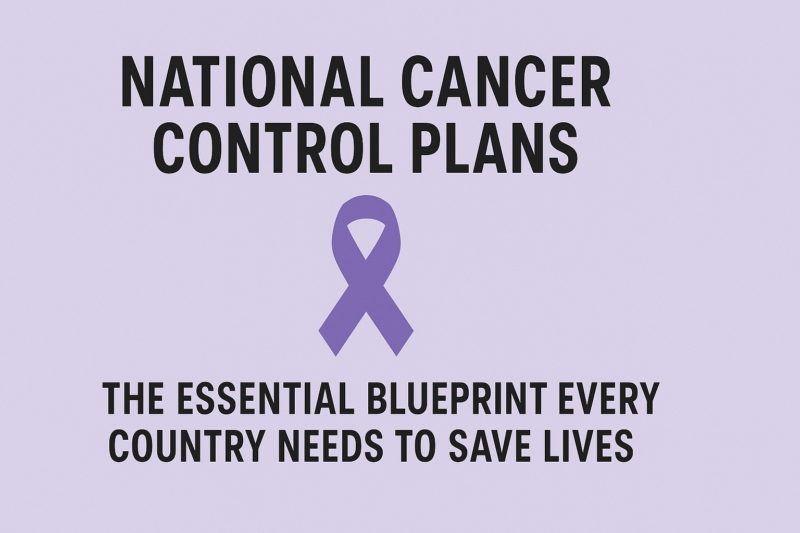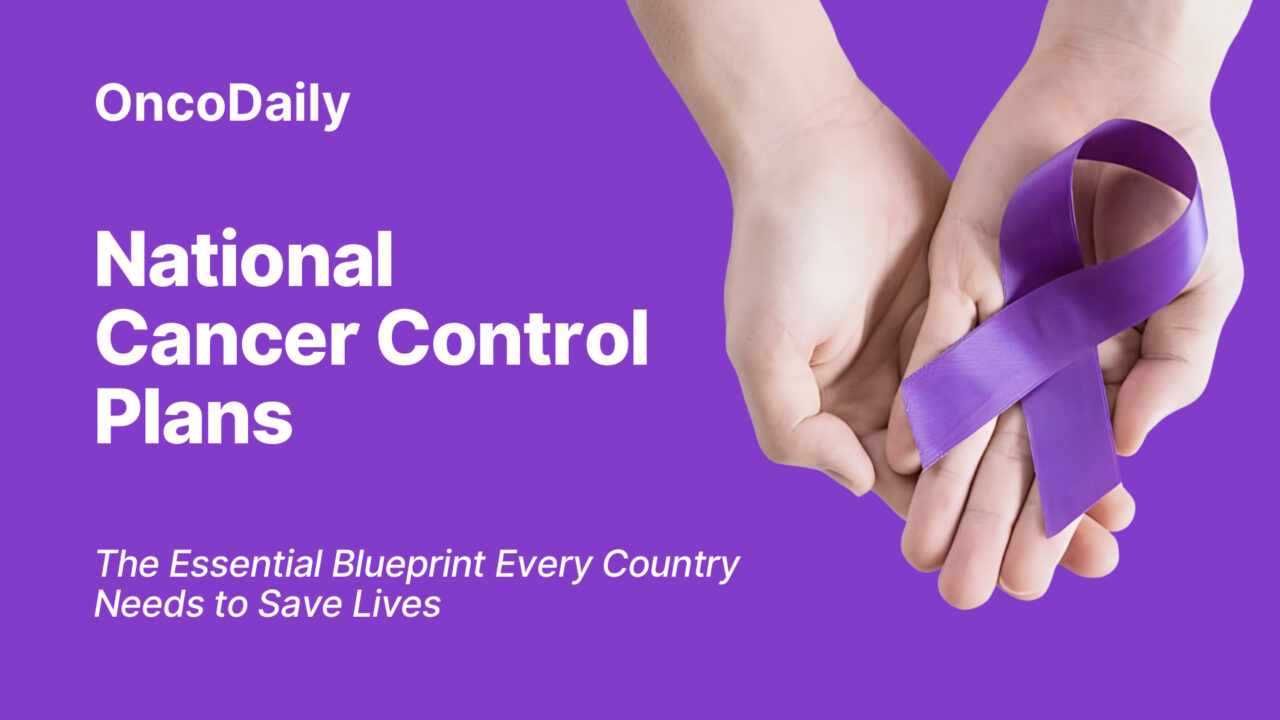Cancer is one of the biggest health challenges of our time. Every year, millions of people are diagnosed, and sadly, many lose their lives—not always because treatments don’t exist, but often because the care they need is unavailable, unaffordable, or simply not organized well.
That’s where National Cancer Control Plans (NCCPs) come in.
Think of an NCCP as a country’s master plan to prevent cancer, catch it early, treat it effectively, and support people living with it. When done right, these plans can save lives, reduce suffering, and make sure everyone—no matter where they live—has a fair chance at beating cancer.
So, What Exactly Is an NCCP?
A National Cancer Control Plan is a strategy led by a country’s government to tackle cancer across the board. It covers everything from preventing cancer (like promoting healthy lifestyles and vaccines) to improving screening, diagnosis, treatment, and even care after treatment, including support for survivors and people at the end of life.
It’s not a one-size-fits-all approach. Every country shapes its plan based on its own needs, health system, and resources. But some common goals include:
-
Helping people avoid cancer in the first place (e.g. tobacco laws, HPV vaccines)
-
Ensuring access to diagnosis, treatment, and medications
-
Providing palliative care and emotional support
-
Collecting data to understand what’s working and what’s not
-
Training healthcare workers so the system runs better
Why These Plans Matter
You might be wondering: why not just have hospitals and doctors do their job? Why is a national plan so important?
Here’s why NCCPs are a game-changer:
- They Bring Everyone Together
Without a national plan, efforts can be scattered. Different groups might be doing great work, but if they’re not coordinated, people fall through the cracks. An NCCP helps align efforts across the country—from government bodies and hospitals to NGOs and community workers.
- They Improve Access and Fairness
Not everyone has equal access to care. A good NCCP makes sure underserved communities—whether in rural areas or low-income neighborhoods—are not left behind.
- They Make Smart Use of Resources
Let’s face it: healthcare budgets are tight. NCCPs help countries focus on the most effective and affordable interventions, like prevention and early detection, which save both lives and money.
- They Track Progress
With solid data and clear goals, countries can measure what’s working, fix what’s not, and keep moving forward.

The Challenges
Of course, writing a plan is one thing—making it happen is another.
Many countries, especially those with limited resources, face real hurdles like:
-
Not enough trained medical staff
-
Shortage of diagnostic tools or medicines
-
Gaps in health insurance or government funding
-
Cultural taboos or lack of awareness around cancer
-
Political instability or shifting priorities
Still, even small steps in the right direction—like launching an HPV vaccination campaign or building a cancer registry—can make a big impact.
Countries Leading the Way
More than 120 countries now have an NCCP in place or in development (WHO, 2024)—a major leap forward. International groups like UICC, WHO, and IAEA are helping drive this momentum through advocacy, technical guidance, and funding.
Here are a few inspiring examples:
-
Rwanda has launched an ambitious cancer plan that includes widespread HPV vaccination and cancer registries to track progress.
-
India has integrated cancer care into its broader health mission, with strong programs in tobacco control and rural outreach.
-
Chile has built cancer services into its universal health system, showing how even middle-income countries can build strong, equitable care.
Looking Ahead
The number of cancer cases worldwide is expected to rise dramatically over the next 20 years. But with the right plans in place, countries can get ahead of the curve.
National Cancer Control Plans aren’t just paperwork—they’re lifesaving strategies. They bring clarity, structure, and hope to a disease that too often causes chaos and fear.
When governments, communities, and healthcare providers come together around a shared vision, we can turn the tide against cancer—one plan at a time.
Let’s Keep the Conversation Going
Whether you’re a healthcare provider, policymaker, advocate, or just someone who cares—you have a role to play in supporting better cancer care where you live.
- Ask your local leaders about your country’s cancer control strategy.
- Support organizations working to improve access to prevention and treatment.
- And most importantly—keep raising awareness.
For more real stories, expert insights, and updates from around the world, follow OncoDaily — your daily dose of what’s happening in the global fight against cancer.
Together, we can move from plans to progress.
By: Md Foorquan Hashmi, MD, Sr. Editor, OncoDaily: India Bureau


